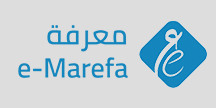A Systematic Review of Storytelling Strategy in Empowering Speaking Skill in EFL Classrooms
DOI:
https://doi.org/10.21271/zjhs.27.5.15Keywords:
Keywords; Language teaching, speaking skill, story-telling, foreign language, motivationAbstract
Language educators aim to promote speaking skill because speaking skill is one of the productive skills that make foreign language learners create meaningful conversations and dialogues with the target language. Speaking skill is highly significant. Additionally, enhancing speaking skill requires actively involved students, and for that, language instructors need to use some tools and strategies. There are different methods and strategies for promoting speaking skill, such as story-telling strategies. Story-telling strategies aim to have communication and discussions in the class via narrating stories. Additionally, the story-telling method involves the students practicing their communication skills. Thus, this research paper explores the values of story-telling strategies in the EFL classroom. The present study, a qualitative research design was implemented, and the data was collected from secondary sources such as research articles. For analyzing the data, a systematic analysis was implemented. Results demonstrated that story-telling was highly sufficient in improving speaking skill including teaching vocabulary. It enhances the capacity of acquiring new vocabulary, fostering pronunciation. It also enables the learner's imitation skill, expanding the learner's communication, including their criticality. In brief, story-telling strategies help language learners to improve their speaking skill. Classroom.
References
Altun, M., 2020. The role of storytelling on students speaking skills. Journal of Critical Reviews, 7(16), pp.2390-2394.
Arias, J.P., Yoma, N.B. and Vivanco, H., 2010. Automatic intonation assessment for computer aided language learning. Speech communication, 52(3), pp.254-267.
Blöte, A.W., Kint, M.J., Miers, A.C. and Westenberg, P.M., 2009. The relation between public speaking anxiety and social anxiety: A review. Journal of anxiety disorders, 23(3), pp.305-313.
Bopp, M.M., 2008. Storytelling and motivation in serious games. Part of the Final Consolidated Research Report of the Enhanced Learning Experience and Knowledge Transfer-Project ELEKTRA, 27986.
Chaney, A.L. and Burk, T.L., 1998. Teaching Oral Communication in Grades K-8. Allyn and Bacon, Order Processing, PO Box 11071, Des Moines, IA 50336-1071.
Collins, F., 1999. The use of traditional storytelling in education to the learning of literacy skills. Early Child Development and Care, 152(1), pp.77-108.
Davidhizar, R. and Lonser, G., 2003. Storytelling as a teaching technique. Nurse Educator, 28(5), pp.217-221.
Ehsani, F. and Knodt, E., 1998. Speech technology in computer-aided language learning: Strengths and limitations of a new CALL paradigm. Language Learning & Technology, 2(1), pp.54-73.
Ek, K., Sahlberg‐Blom, E., Andershed, B. and Ternestedt, B.M., 2011. Struggling to retain living space: patients’ stories about living with advanced chronic obstructive pulmonary disease. Journal of advanced nursing, 67(7), pp.1480-1490.
Fog, K., Budtz, C. and Yakaboylu, B., 2005. Branding in practice. Springer.
Greene, E., 1996. Storytelling: art and technique: art and technique. ABC-CLIO.
Gusdian, R.I., Setyaningrum, R.W. and Lestiono, R., 2020. Facilitating Proper English Pronunciation in Storytelling By Virtue of Hijaiyah Sound Mediation. Erudio Journal of Educational Innovation, 7(1), pp.73-78.
Hammarberg, K., Kirkman, M. and de Lacey, S., 2016. Qualitative research methods: when to use them and how to judge them. Human reproduction, 31(3), pp.498-501.
Julaihah, S., 2022. THE EFFECT OF THE STORYTELLING METHOD ON THE PUBLIC SPEAKING SKILL OF CADETS SURABAYA AVIATION POLYTECHNIC. Jurnal Penelitian, 7(1), pp.37-44.
Kirsch, C., 2016. Using storytelling to teach vocabulary in language lessons: Does it work?. The Language Learning Journal, 44(1), pp.33-51.
Lenhart, J., Lenhard, W., Vaahtoranta, E. and Suggate, S., 2018. Incidental vocabulary acquisition from listening to stories: a comparison between read-aloud and free storytelling approaches. Educational Psychology, 38(5), pp.596-616.
Lim, N.Z.L., Zakaria, A. and Aryadoust, V., 2022. A systematic review of digital storytelling in language learning in adolescents and adults. Education and Information Technologies, pp.1-31.
Littlewood, W., 2014. Communication-oriented language teaching: Where are we now? Where do we go from here?. Language Teaching, 47(3), pp.349-362.
Lucarevschi, C.R., 2016. The role of storytelling on language learning: A literature review. Working Papers of the Linguistics Circle, 26(1), pp.24-44.
MacLeod, M. and Davidson, E., 2007, January. Organizational storytelling and technology innovation. In 2007 40th Annual Hawaii International Conference on System Sciences (HICSS'07) (pp. 248c-248c). IEEE.
Marsevani, M. and Rahman, D.M., THE IMPROVEMENT OF STUDENTS’SPEAKING SKILL THROUGH STORYTELLING.
Mason, B., 2005. Vocabulary acquisition through storytelling. TexTESOL III Newsletter, pp.3-5.
Nair, V. and Md Yunus, M., 2022. Using Digital Storytelling to Improve Pupils’ Speaking Skills in the Age of COVID 19. Sustainability, 14(15), p.9215.
Peterson, E.E. and Langellier, K.M., 2005. Communication as storytelling. GJ Shepherd, J. St. John, & T. Striphas (Eds.), Comunication as…: Perspectives on theory, pp.123-131.
Robin, B.R., 2008. Digital storytelling: A powerful technology tool for the 21st century classroom. Theory into practice, 47(3), pp.220-228.
Roney, R.C., 1996. Storytelling in the Classroom: Some Theoretical Thoughts. Storytelling world, 9, pp.7-9.
Shojania, K.G. and Bero, L.A., 2001. Taking advantage of the explosion of systematic reviews: an efficient MEDLINE search strategy. Effective clinical practice: ECP, 4(4), pp.157-162.Ali, F.S. and Sarok, S., 2022. Students’ awareness towards using google docs in promoting writing skills in EFL classes: TIU-Northern Iraq. Canadian Journal of Language and Literature Studies, 2(2), pp.39-51.
Soleimani, H. and Akbari, M., 2013. The effect of storytelling on children's learning English vocabulary: A case in Iran. International Research Journal of Applied and Basic Sciences, 4(11), pp.4005-4014.
Yang, Y.T.C. and Wu, W.C.I., 2012. Digital storytelling for enhancing student academic achievement, critical thinking, and learning motivation: A year-long experimental study. Computers & education, 59(2), pp.339-352.
Yılmaz, R. and Ciğerci, F.M., 2019. A brief history of storytelling: From primitive dance to digital narration. In Handbook of research on transmedia storytelling and narrative strategies (pp. 1-14). IGI Global.
Zuhriyah, M., 2017. Storytelling to improve students’ speaking skill. English Education: Jurnal Tadris Bahasa Inggris, 10(1), pp.119-134.
Khodabandeh, F., 2018. THE IMPACT OF STORYTELLING TECHNIQUES THROUGH VIRTUAL INSTRUCTION ON ENGLISH STUDENTS’SPEAKING ABILITY. Teaching English with Technology, 18(1), pp.24-36.
Yang, Y.T.C. and Wu, W.C.I., 2012. Digital storytelling for enhancing student academic achievement, critical thinking, and learning motivation: A year-long experimental study. Computers & education, 59(2), pp.339-352.
Downloads
Published
How to Cite
Issue
Section
License
Copyright (c) 2023 Kanar Zirak Haseeb Chicho, Ahmed Hussin Abdulla

This work is licensed under a Creative Commons Attribution-NonCommercial-ShareAlike 4.0 International License.
Except where otherwise noted, content on this site is licenced
under a Creative Commons Attribution License 4.0 (CC BY- 4.0)










